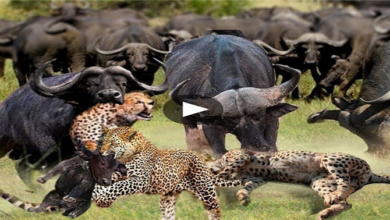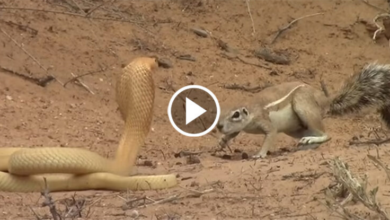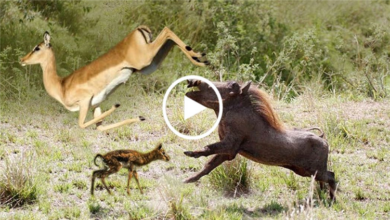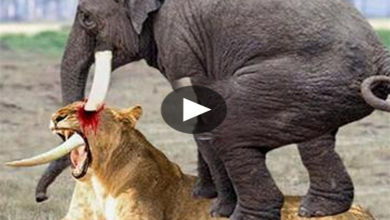Farewell to a Legend: Ozzie, the Oldest Male Gorilla, Dies at 61 in Zoo Atlanta

The world’s oldest male gorilla, 61-year-old Ozzie, was found dead by his care team in his habitat at Zoo Atlanta on Tuesday.
Ozzie’s cause of death is not yet known and zoo officials are still awaiting the results of a necropsy, though the western lowland gorilla, who is also the third-oldest gorilla in the world, was diagnosed with COVID-19 this past September.
His symptoms at the time were mild and he had since recovered from them, but it is unclear if the virus played a role in his death.
Veterinary staff reported that Ozzie started experiencing a decrease in appetite last Thursday and it was increasingly difficult to get him to eat, according to a press release from Zoo Atlanta. Over the 24 hours leading to his death, he exhibited worsening symptoms including facial swelling, general weakness, and the inability to eat or drink.

‘Our hearts are broken at the passing of a legend. Zoo Atlanta is devastated to share that Ozzie, the world’s oldest male gorilla, has died at 61,’ Zoo Atlanta posted on Twitter on Tuesday.
Ozzie was the only surviving member of the original group of western lowland gorillas who arrived at Zoo Atlanta with the opening of The Ford African Rain Forest in 1988.
He made zoological history in 2009 by becoming the first gorilla in the world to voluntarily take a blood pressure test.
Ozzie was the third oldest gorilla in the world, as the oldest is 64-year-old Fatou, of the Berlin Zoo in Germany, and the second oldest is 63-year-old Helen, of the Louisville Zoo in Kentucky.
“This is a devastating loss for Zoo Atlanta. While we knew this time would come someday, that inevitability does nothing to stem the deep sadness we feel at losing a legend,” Zoo Atlanta President and CEO Raymond B. King said in a statement.

“Ozzie’s life’s contributions are indelible, in the generations of individuals he leaves behind in the gorilla population and in the world’s body of knowledge in the care of his species. Our thoughts are with his care team, who have lost a part of their lives and a part of their hearts,’ he added.
Ozzie was one of 13 gorillas at Zoo Atlanta who tested positive for COVID-19 this past September, zoo officials announced at the time. Employees noticed that the gorillas had been coughing, had runny noses and showed changes in appetite. A veterinary lab at the University of Georgia returned positive tests for the respiratory illness.
Zoo officials said they believed a vaccinated employees who cares for the gorillas passed on the virus while asymptomatic. The employee was wearing protective equipment such as a mask and gloves.
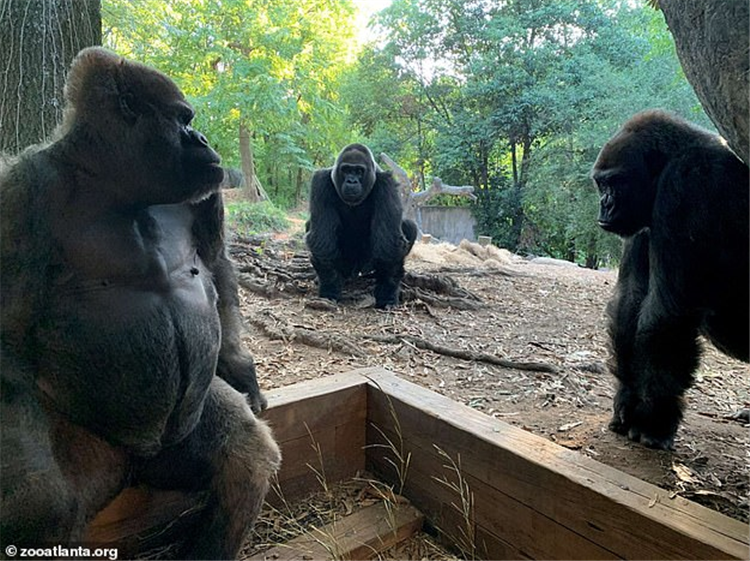
Dr. Sam Rivera, the zoo’s senior director of animal health, told The Atlanta Journal-Constitution that Atlanta’s gorillas appeared to be the second group of great apes infected by COVID-19, after eight gorillas at the San Diego Zoo Safari Park were treated for the virus last January.
Because the gorillas live close together, Rivera said it’s impossible to keep infected animals isolated. He said the Atlanta zoo will vaccinate the gorillas with a veterinary vaccine. Zoo Atlanta is vaccinating its Bornean and Sumatran orangutans, its Sumatran tigers, its African lions and its clouded leopard.
Ozzie’s legacy lives on at Zoo Atlanta with his daughter Kuchi; his sons Kekla, Stadi, and Charlie; his granddaughter Lulu; his great-granddaughter Andi, and his great-grandson Floyd. He is also survived by a number of children, grandchildren, and great-grandchildren living at other accredited zoos in the U.S. and Canada.

The zoo attributed Ozzie’s ‘incredible longevity’ to the ‘care, expertise, and significant innovations of the Zoo’s Gorilla Care Team’ and its experience caring for senior gorillas, which are considered geriatric after turning 40.
Ozzie’s death comes just weeks after Choomba, another gorilla at Zoo Atlanta and the fourth oldest in the world, was euthanized at 59.
Veterinary staff had been monitoring Choomba following a ‘marked decline in her physical condition due to advanced arthritis and other age-related complications,’ read a statement from the zoo.
‘Given her poor prognosis and with concern for her comfort and quality of life, the teams made the extremely difficult decision to euthanize her on January 13,” the statement continued.
Western lowland gorillas are critically endangered and over a 25-year period, the combined threats of disease, poaching, habitat loss and illegal hunting for the bushmeat trade have reduced western lowland gorilla populations by 60 percent, according to the International Union for the Conservation of Nature.

